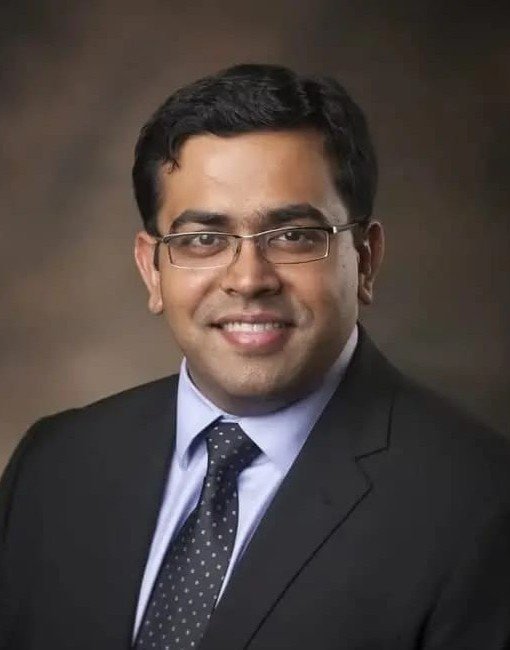Heart transplantation is one of the most complex procedures in modern medicine that has offered a second chance to many people with end-stage heart disease. The number of heart transplants has risen over the recent years with improving survival rates. Despite its growing success and availability, numerous myths and misconceptions may create fear among patients considering a heart transplant.
In this blog post, let us debunk some of the most common myths about heart transplantation!
What Is A Heart Transplant?
Heart transplants are a life-saving procedure for several people. During the procedure, the patient’s damaged or failing heart is replaced with a healthy heart from the donor. It is used to treat patients with advanced heart failure.
The main advantages of a successful heart transplant are
- Most heart transplant patients live longer and have higher energy levels
- Most transplant patients enjoy a better quality of life and have improved general well-being.
Why do we need a Heart Transplant?
A heart transplant may be required when regular medications, lifestyle modifications, and other procedures are unable to cure an underlying heart condition, resulting in end-stage heart failure. The different heart conditions that may lead to a heart transplant are
- Advanced heart failure
- Arrhythmias
- Cardiomyopathy
- Congenital heart disease
- Failure of the previous heart transplant
10 Common Myths and Facts About Heart Transplant
Myth 1: Heart Transplants are Only for Elderly Patients
Fact: Heart transplants are not age-restricted and are not specific for a particular age. While many older individuals may be candidates for a heart transplant, individuals of all ages, including children, may undergo heart transplants if they suffer from end-stage heart failure or congenital heart conditions and meet specific criteria for heart transplantation.
Myth 2: Heart Transplant Waiting List is Always Long
Fact: Some patients may wait for several months or even years for a heart transplant. However, not all patients face an extremely long wait for a heart transplant. The time on the waiting list may vary largely depending on several factors, including urgency and severity of condition, blood type and tissue compatibility, geographic location, and the availability of donor hearts.
Myth 3: You can’t have a Normal Life After a Heart Transplant
Fact: Many heart transplant recipients may lead an active, fulfilling and normal life after the surgery with proper care and a healthy lifestyle. It is important to avoid putting excess strain on the heart and lifting anything heavy during the first few months after the surgery. However, these patients may require lifelong medications and regular medical check-ups to prevent organ rejection.
Myth 4: The Doctor Might Only Consider a Heart Transplant if All Other Therapies Have Failed
Fact: Heart transplants are often considered when other treatments are no longer effective. Sometimes, surgeons may recommend a heart transplant earlier depending on the severity and progression of heart failure and the overall health of the patient. The decision to go for the transplant will be based on the evaluation by the team of surgeons to ensure the best possible outcome for the patient.
Myth 5: Organ Rejection Always Occurs After a Heart Transplant
Fact: Organ rejection is always a known risk after a heart transplant, but with advancements in immunosuppressive medications and regular monitoring post-transplant, most cases can be managed effectively or prevented. Regular monitoring, attending follow-up appointments, and adhering to medications are important to ensure that the transplanted heart remains functional.
Myth 6: Heart Transplants Don’t Last Long
Fact: The survival rate of people receiving heart transplants has steadily improved over the years. It may vary depending on different factors, including age, history of smoking, diabetes, and other lifestyle considerations. Heart transplants may last a long time due to advances in surgical techniques, immunosuppressive medications, and post-transplant care with proper medical follow-up and healthy habits.
Myth 7: You Will Be in Constant Pain After a Heart Transplant
Fact: The patients experience some pain and discomfort during the initial recovery after surgery. But most patients do not experience ongoing or chronic pain. Also, the pain typically decreases significantly as the body recovers with proper medical care, pain management, and physical rehabilitation.
Myth 8: Heart Transplants Are Available Only in Developed Countries
Fact: Heart transplants were once primarily performed in highly developed countries. The advancements in global healthcare have also made these procedures accessible in many developing nations. Improved medical infrastructure, skilled surgeons, and medical tourism play an important role in improving access to care.
Myth 9: A Heart Transplant Recipient Will Have the Donor’s Emotions or Memories
Fact: Some studies have shown that heart transplant recipients may exhibit preferences, emotions, and memories resembling those of the donors. It has been proposed that the heart can also store memory. However, the available scientific studies are not conclusive on whether the recipient can inherit the emotions or memories of the donor. Future studies will help to further determine if the heart transplant recipient will have the donor’s emotions.
Myth 10: You Have to Be Related to the Recipient to Be a Donor
Fact: You do not have to be biologically related to donate a heart. Most heart transplants come from deceased donors who have been declared brain-dead through a series of medical assessments. The criterion that the donor heart must meet is that the donor should be younger than 65 years old, with little or no history of heart disease or chest trauma, no history of exposure to HIV, and without blood circulation for more than four hours.
Why Heart360 Care is the Best Choice for the Best Cardiac Care?
Heart360 Care stands out as a top-tier cardiac care centre and delivers comprehensive and advanced heart treatments with precision.
Here are the reasons for choosing Heart360 Care for the best cardiac care in Chennai:
- Comprehensive world-class heart care
- Team of skilled cardiac specialists led by an American Board Certified Cardiac surgeon, Dr Nikhil
- Over 400 TAVR/TAVI incisionless valve replacements and 250+ robotic surgeries
- Patient-centered approach
- Easily accessible location
If you or a loved one is considering a heart transplant, it is recommended to speak with your cardiologist to get the facts and explore the options. If you are in Chennai and have queries regarding a heart transplant, feel free to book a consultation with Heart360 Care for expert guidance!
Conclusion
Heart transplantation is a life-saving procedure that has come a long way with advancements in technology and the expertise of the surgeons. It is important to unravel the myths surrounding the heart transplant, which will help patients make informed decisions about the procedure.
Frequently Asked Questions
The life expectancy for patients after a heart transplant is variable, depending on age, adherence to medications, lifestyle factors and how well the body accepts the new heart. According to recent studies, the average life expectancy of a heart transplant patient is around 9 years. However, it is recommended to talk to your healthcare provider about the estimated life expectancy.
The original heart disease will rarely come back after a transplant. However, it depends on why the heart became diseased. For example, lifestyle risks, including high blood pressure, high cholesterol, or diabetes, may affect the new heart if not properly managed. So, ongoing care is required after a transplant.
You may be ineligible for a heart transplant if you are over 70 years, have a recent history of cancer, severe pulmonary hypertension, advanced kidney, liver, or lung disease, history of noncompliance with medications, poorly controlled diabetes, obesity, or use of tobacco, alcohol, and/or drugs within the previous six months.
References
https://my.clevelandclinic.org/health/diseases/23050-heart-transplant-rejection
https://onlinelibrary.wiley.com/doi/full/10.1002/nop2.489
https://pmc.ncbi.nlm.nih.gov/articles/PMC11061817
https://pubmed.ncbi.nlm.nih.gov/31739081
https://www.sciencedirect.com/science/article/abs/pii/S0306987719307145









